Well, after looking around quite a lot, I could not find a solution to my problem, as it "should" work, but obviously doesn't. I'm using on a Ubuntu 14.04 LTS machine Logstash 1.4.2-1-2-2c0f5a1, and I am receiving messages such as the following one:
2014-08-05 10:21:13,618 [17] INFO Class.Type - This is a log message from the class:
BTW, I am also multiline
In the input configuration, I do have a multiline codec and the event is parsed correctly. I also separate the event text in several parts so that it is easier to read.
In the end, I obtain, as seen in Kibana, something like the following (JSON view):
{
"_index": "logstash-2014.08.06",
"_type": "customType",
"_id": "PRtj-EiUTZK3HWAm5RiMwA",
"_score": null,
"_source": {
"@timestamp": "2014-08-06T08:51:21.160Z",
"@version": "1",
"tags": [
"multiline"
],
"type": "utg-su",
"host": "ubuntu-14",
"path": "/mnt/folder/thisIsTheLogFile.log",
"logTimestamp": "2014-08-05;10:21:13.618",
"logThreadId": "17",
"logLevel": "INFO",
"logMessage": "Class.Type - This is a log message from the class:\r\n BTW, I am also multiline\r"
},
"sort": [
"21",
1407315081160
]
}
You may have noticed that I put a ";" in the timestamp. The reason is that I want to be able to sort the logs using the timestamp string, and apparently logstash is not that good at that (e.g.: http://www.elasticsearch.org/guide/en/elasticsearch/guide/current/multi-fields.html).
I have unsuccessfull tried to use the date filter in multiple ways, and it apparently did not work.
date {
locale => "en"
match => ["logTimestamp", "YYYY-MM-dd;HH:mm:ss.SSS", "ISO8601"]
timezone => "Europe/Vienna"
target => "@timestamp"
add_field => { "debug" => "timestampMatched"}
}
Since I read that the Joda library may have problems if the string is not strictly ISO 8601-compliant (very picky and expects a T, see https://logstash.jira.com/browse/LOGSTASH-180), I also tried to use mutate to convert the string to something like 2014-08-05T10:21:13.618 and then use "YYYY-MM-dd'T'HH:mm:ss.SSS". That also did not work.
I do not want to have to manually put a +02:00 on the time because that would give problems with daylight saving.
In any of these cases, the event goes to elasticsearch, but date does apparently nothing, as @timestamp and logTimestamp are different and no debug field is added.
Any idea how I could make the logTime strings properly sortable? I focused on converting them to a proper timestamp, but any other solution would also be welcome.
As you can see below:

When sorting over @timestamp, elasticsearch can do it properly, but since this is not the "real" log timestamp, but rather when the logstash event was read, I need (obviously) to be able to sort also over logTimestamp. This is what then is output. Obviously not that useful:

Any help is welcome! Just let me know if I forgot some information that may be useful.
Update:
Here is the filter config file that finally worked:
# Filters messages like this:
# 2014-08-05 10:21:13,618 [17] INFO Class.Type - This is a log message from the class:
# BTW, I am also multiline
# Take only type- events (type-componentA, type-componentB, etc)
filter {
# You cannot write an "if" outside of the filter!
if "type-" in [type] {
grok {
# Parse timestamp data. We need the "(?m)" so that grok (Oniguruma internally) correctly parses multi-line events
patterns_dir => "./patterns"
match => [ "message", "(?m)%{TIMESTAMP_ISO8601:logTimestampString}[ ;]\[%{DATA:logThreadId}\][ ;]%{LOGLEVEL:logLevel}[ ;]*%{GREEDYDATA:logMessage}" ]
}
# The timestamp may have commas instead of dots. Convert so as to store everything in the same way
mutate {
gsub => [
# replace all commas with dots
"logTimestampString", ",", "."
]
}
mutate {
gsub => [
# make the logTimestamp sortable. With a space, it is not! This does not work that well, in the end
# but somehow apparently makes things easier for the date filter
"logTimestampString", " ", ";"
]
}
date {
locale => "en"
match => ["logTimestampString", "YYYY-MM-dd;HH:mm:ss.SSS"]
timezone => "Europe/Vienna"
target => "logTimestamp"
}
}
}
filter {
if "type-" in [type] {
# Remove already-parsed data
mutate {
remove_field => [ "message" ]
}
}
}